The first undergraduate summer intern field season started in June 2017 and is well underway! Thirty undergraduate interns are integrated into various aspects of the overarching research.
Interns in the Ecology group are working on a variety of projects. Some explore processes that drive nutrient loading and harmful algal blooms with particular emphasis on the role of extreme weather events. Others focus on the influence of soil biogeochemical processes on stream water quality. Students install, monitor, and gather data from a cutting edge soil and stream-sensor network that monitors the resilience of water quality along the soil-to-water continuum during extreme events. The lake hydrodynamics group designs, fabricates and deploys subsurface moorings, samples bottom sediment, and undertakes high-resolution bottom-mapping of St. Albans Bay.
Interns in the Social Systems group use existing data to characterize patterns in the policy and administrative decision-making contexts that influence land use change in the Lake Champlain Basin and add to on-going analysis of the region’s water quality governance.
Interns in the Integrated Assessment Modelling group work to tie together the climate downscaling, hydrology, land use transition, economic, governance network, and lake models by connecting the data as it flows from one model to the next. This group includes some interns who focus on downscaling of climate models to regional conditions and others who map stormwater treatment networks.
After completing their summer research, interns will return to Burlington to present their findings at the 2018 Vermont EPSCoR Student Research Symposium in the spring.
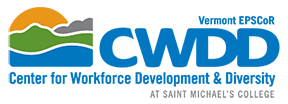
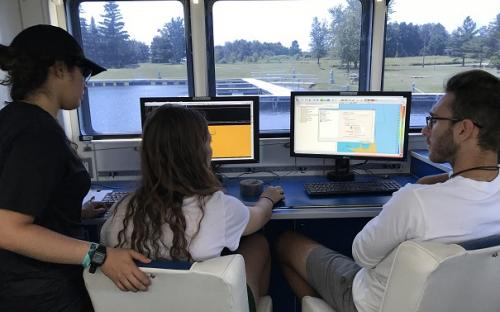
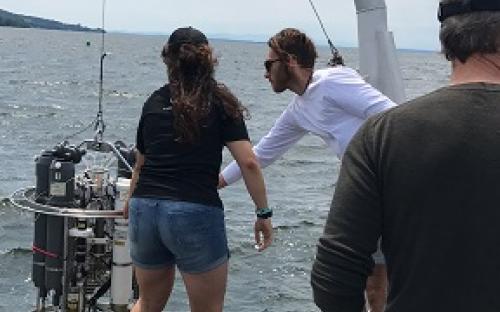
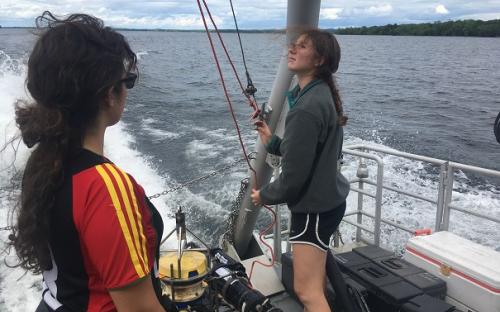
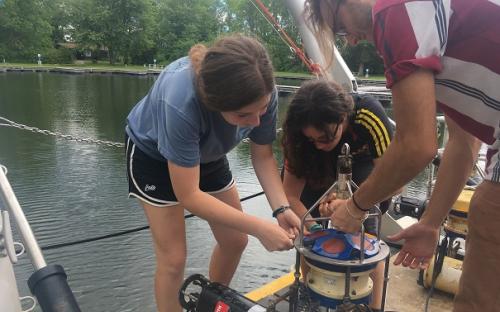
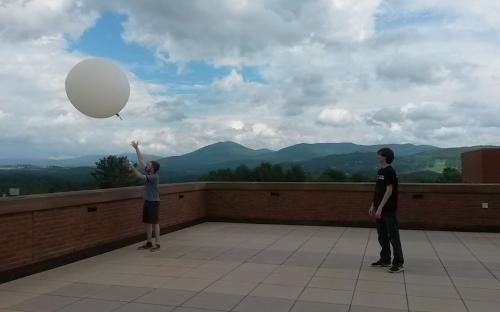
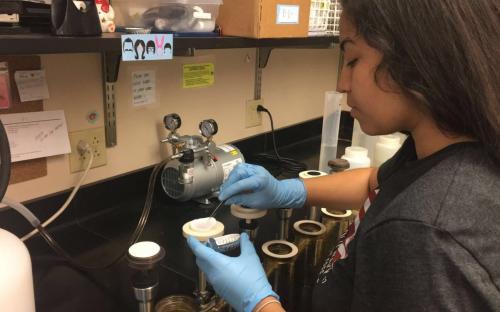
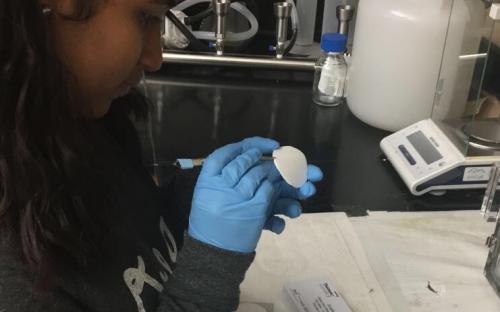
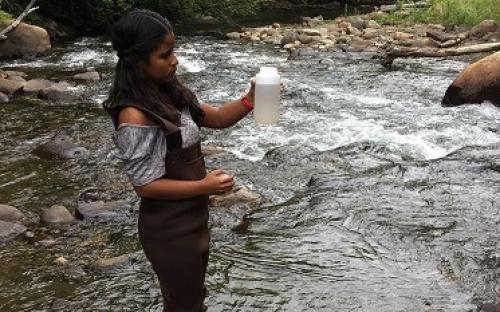
![Interns Jeralyn Carmichael and Alexis Doreste meet with regional planner Taylor Newton and mentor Clare Ginger. [Photo: Richard Kujawa]](https://epscor.w3.uvm.edu/2/sites/default/files/styles/galleryformatter_slide/public/gallery_images/SocialScienceInternsMtg.jpg?itok=K_a_702d)
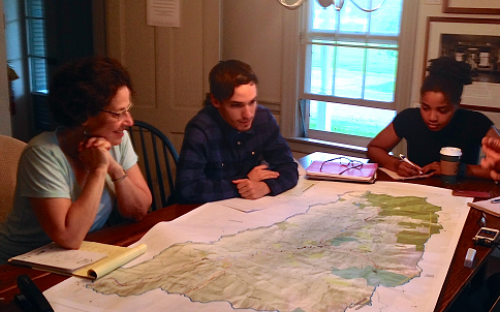
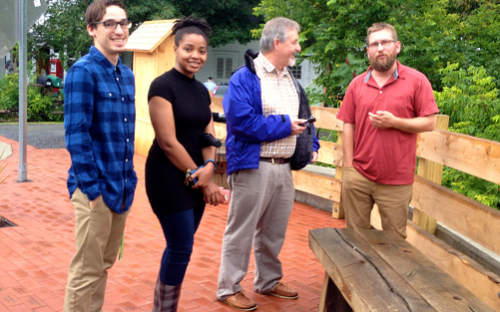








![Interns Jeralyn Carmichael and Alexis Doreste meet with regional planner Taylor Newton and mentor Clare Ginger. [Photo: Richard Kujawa]](https://epscor.w3.uvm.edu/2/sites/default/files/styles/galleryformatter_thumb/public/gallery_images/SocialScienceInternsMtg.jpg?itok=vMJFH50y)

